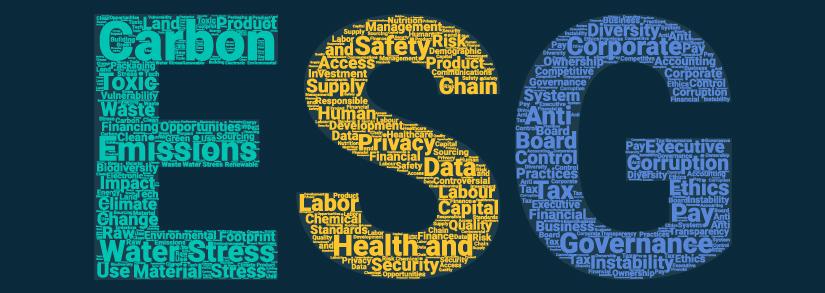In the past, Environmental, Social & Governance (ESG) goals were important targets for business leaders – but often not a top priority. The universal impact of climate change, inequality, social movements, and the questions that are being asked of our leadership in a connected world, is quickly leading to a major shift in business practices, with sustainability and other ESG values now taking center stage. Fast forward to today, and a top agenda in many boardrooms relates to the effective implementation of ESG practices.
The business environment has indeed changed, and the cultural shifts that inspired this change are unlikely to be reversed. Today’s governments, investors, and customers increasingly demand that the business community play its part in the fight against climate change and other concerns. With consumers actively pushing for ethical and sustainable practices across the private sector, investors and other stakeholders are likewise insisting that companies step up to the challenge.
In this information age, empty promises on sustainability are quickly exposed. Companies therefore need to ensure that every aspect of their supply chain complies with the UN’s sustainable development goals, and other ESG targets.
As ESG becomes a business-critical function, and having ‘a seat at the table’ in a growing number of organizations, it begs the question – “how do you fill key ESG appointments at the pace in which they are arising?” Particularly when the function has scarcely existing in the form it is taking today in a growing number of businesses.
Our recent experience at Connexus Global, which includes recruiting two Asia based Heads of Sustainability, one for a primary food producer, and the other with a specialty chemicals business, has pointed towards leaders coming from a Strategic Procurement and Supply Chain Leadership background, being considered on shortlists and appointed into these key roles, with recognition of highly relevant and transferable skills in leadership, influencing and stakeholder management.
ESG and the path to business success
Implementing sustainable practices into your business model not only has a profound impact on the environment and society, but these efforts also lead directly to business success. Survey after survey shows that consumers are willing to spend more for eco-friendly products.
Strong ESG credentials can also lower operational costs by 5 to 10 percent, through increased focus on operational efficiency and waste reduction. Moreover, business leaders will find it easier to attract and retain quality employees, enhance motivation, and boost overall productivity if they live up to widely shared ESG values.
The role of procurement in the 2020’s
Even when businesses prioritise green initiatives to reduce resource consumption, a qualified procurement leader is generally in place to oversee each project. This leader is often also skilled at engaging local communities, to assure people that best environmental practices are being followed.
This path to sustainability will take time, and businesses still have a long way to go. Sustainable procurement remains in its infancy, and not every business is ready to make the switch. In fact, a recent survey of CPOs at large companies found that 60 percent had no aligned sustainability strategy, just 20 percent used sustainable measures as the primary criteria in sourcing decisions, and less than 10 percent said that sustainability was included in their category strategies.
In Asia, surveys show that a shortage of expertise in this area is of particular concern. Fully 41% of respondents who are holding back on their ESG goals cite a lack of qualified talent as the primary reason for their limited progress. The resulting competition for talent has left many organisation’s without the right leadership to help get their business on track towards sustainability. Despite these setbacks, 73 percent of respondents expect their companies to actively seek advice on social or sustainability issues over the next 12 months, as part of their pursuit of ESG goals.
The effect of procurement on carbon reduction commitments
Although many companies struggle to find their footing with ESG initiatives, businesses that can gain traction in this area can make a real difference. The key is to leverage data analytics using high-maturity procurement and product development teams, overseen by an experienced and talented CPO.
A well-developed and optimised system creates new possibilities for sustainable business. Companies can apply “internal carbon pricing”, creating a transparent profit-and-loss penalty for suppliers that source products with high carbon emissions. Other businesses may choose to address the issue from the demand side, making customers aware of the carbon emissions generated by certain products and services. This tool could encourage behavior that has a lower environmental impact, by allowing customers to directly quantify the carbon impact of their purchases.
ESG-related issues will play an important role in the business world for the remainder of this decade and beyond, particularly in relation to procurement and the global supply chain.
Connexus works alongside organisations that have a keen interest in developing ESG practices but struggle to find the right hire during these difficult times. If your organisation seeks talented individuals that will help push your business towards a greener and more sustainable future, contact the Connexus Global team , we will be happy to share our talent market insights with you for this important challenge.










